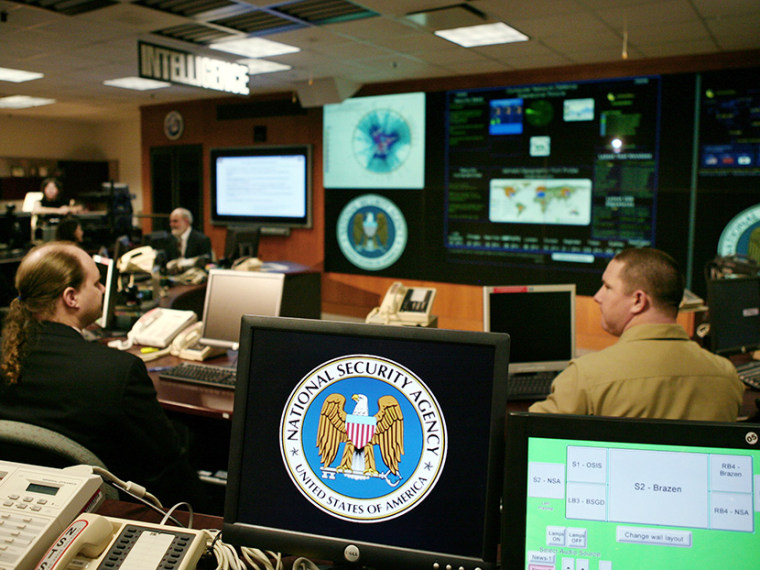The Republican-led House took at least
modest steps towards reforming the NSA's surveillance powers in June, approving a measure fairly easily that would
prohibit the search of government databases for information on U.S. citizens without a warrant. It wasn't a sweeping overhaul, but it was the
first time in recent years that either chamber tried to limit the government's controversial spying powers.
The vote raised hopes that more meaningful NSA reforms might still be possible before the end of the Congress. Those hopes were dashed last night when a filibuster derailed legislation that would have made broad reforms to the National Security Agency. Nick Ramsey
reported overnight:
The bill would have ended the mass collection of phone records by the secretive government organization, instead keeping much of that information in the hands of telephone companies. It also included reforms to the regulatory body that oversees NSA activity, known as the FISA court. The legislation, which was introduced in July, was sponsored by Sen. Patrick Leahy. The Vermont Democrat was joined by a bipartisan group of cosponsors which included some of the Senate's most conservative Republicans like Ted Cruz and Mike Lee, as well as some of the chamber's most liberal Democrats, including Ed Markey and Cory Booker.
The bipartisan group of proponents apparently did little to shape the final outcome. The Senate tally was
58 to 42, two short of the votes needed to overcome a filibuster. Of the 42 opponents, 41 were Republicans -- including Sen. Rand Paul (R-Ky.), a frequent NSA critic, who
claimed the bill didn't go far enough.
The Leahy bill will fare no better in the new year -- incoming Senate Majority Leader Mitch McConnell (R-Ky.) voiced
strong opposition to NSA reforms during yesterday's debate -- but provisions of the Patriot Act will need reauthorization in 2015, so NSA critics will have another opportunity to at least try to advance the debate in the new Congress.
There's probably limited interest in the procedural fight, but this tidbit in the
Politico report struck me as interesting.
In addition to McConnell siding with Paul against the legislation, the GOP leader also found himself once again at odds with a familiar foil: Senate Majority Leader Harry Reid (D-Nev.), who urged the Senate to advance legislation "that's good for this country" past an initial filibuster and pledged not to block consideration of amendments to the bill had it advanced. But as it became clear the bill was headed toward defeat, and with little time this year to take it up again, Reid voted for the bill as it failed. Reid's support for the bill made it procedurally difficult for him to swiftly call the legislation up for another vote, kicking the nation's still unresolved debate over government surveillance to next year's Congress -- and new Majority Leader McConnell.
Ask Senate Republicans why they hate Harry Reid so intensely and they'll point to his heavy-handed floor tactics -- GOP senators want longer debates with more votes on amendments, but Reid routinely stands in the way.
Last night, however, the outgoing Majority Leader told Republicans they could have exactly the floor process they want on NSA reforms, but Republicans filibustered the bill anyway.
